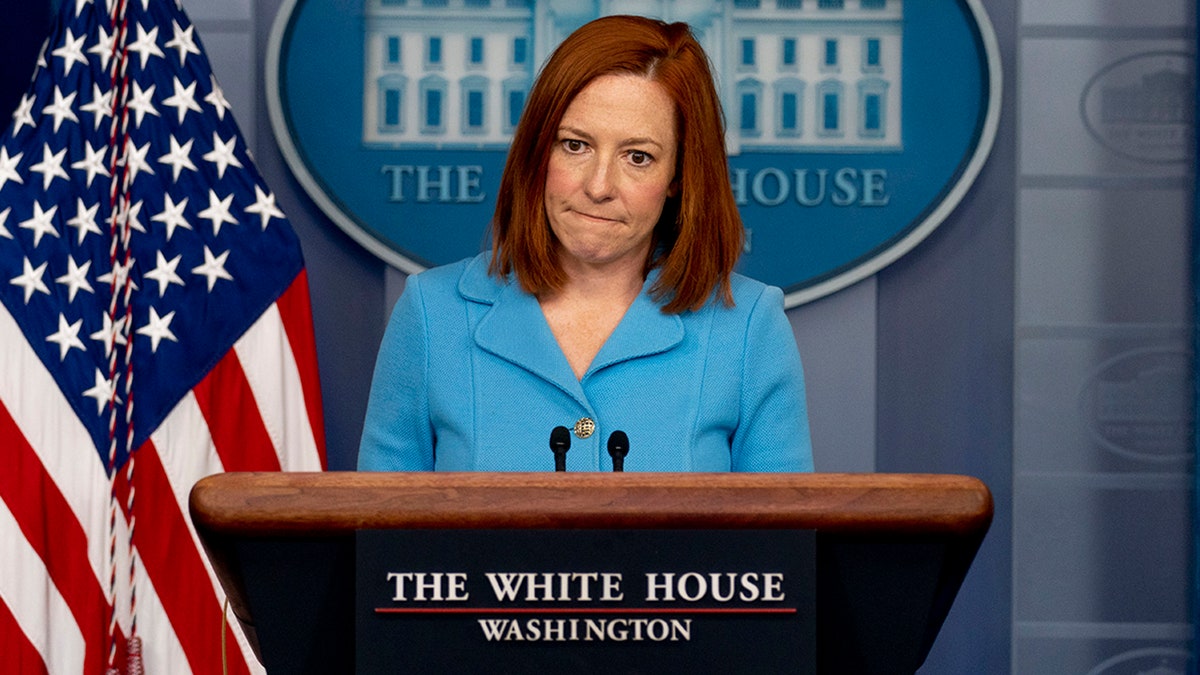Biden throwing ‘gasoline on fire’ by packing Supreme Court: Rep. Ken Buck
Rep. Ken Buck, R-Colo., argues on ‘The Faulkner Focus’ that the Democrats’ court-packing bill is an ‘extreme power grab.’
President Biden is not ready to say whether he supports legislation introduced by House and Senate Democrats that would expand the Supreme Court and is waiting for the findings of a bipartisan commission he impaneled last week that will be reviewing a range of proposed potential reforms to the high court, the White House said Thursday.
Sen. Ed Markey, D-Mass., House Judiciary Committee Chairman Jerrold Nadler, D-N.Y., Rep. Hank Johnson, D-Ga., and Rep. Mondaire Jones, D-N.Y., proposed legislation Thursday that would expand the Supreme Court to 13 seats. There are currently nine seats on the court — a number that has remained the same since 1869.
SEN. MARKEY SAYS DEM COURT-PACKING PROPOSAL WOULD REQUIRE FILIBUSTER BEING REPEALED
The White House, however, is not weighing in on the legislation, pointing to President Biden’s move last week in signing an executive order to form a commission to study potential reforms the Supreme Court.
"Just last week, the president signed an executive order creating the bipartisan commission on the Supreme Court," White House press secretary Jen Psaki said Thursday.
"This is a bipartisan group of over 30 constitutional and legal experts who are examining a range of questions about proposed potential reforms to the Supreme Court," Psaki said. "One of the issues they’ll look at is, of course, the size of the court, but also the court’s role in the constitutional system, the length of service, the turnover of justices, and they are going to come back to the president with a report on what their discussions and findings are."
She added: "So he’s going to wait for that to play out and read the report."

White House press secretary Jen Psaki takes a question at a press briefing at the White House, Thursday, April 8, 2021, in Washington. (AP Photo/Andrew Harnik) (AP)
The bipartisan commission includes 36 members and will hold public meetings to evaluate court reforms. The new panel will have 180 days from the first meeting to complete its report on the pros and cons of potential court reforms.
Biden picked two chairs to lead the commission: New York University School of Law professor Bob Bauer, the former White House Counsel under former President Barack Obama, and Yale Law School Professor Cristina Rodriguez, a former Justice Department official and clerk to former Justice Sandra Day O’Connor.
The other members are scholars, lawyers, retired members of the judiciary and advocates, including Caroline Fredrickson, the past president of the American Constitution Society, a progressive legal organization; Sherrilyn Ifill, president of the NAACP Legal Defense & Educational Fund; and Adam White, a resident scholar at the American Enterprise Institute and member of the conservative Federalist Society.
But Psaki, on Thursday, was asked whether the White House was frustrated with congressional Democrats for rolling out the legislation, less than a week after the president formed the bipartisan commission.
"No," Psaki said. "The president believes it is important to take a look at a range of points of view, whether progressive or conservative—different sets of legal opinions."
She added that the president "looks forward to assessing that himself," and said that she expects "he will not have more to convey about any recommendations or views he’ll have until he reads that report."
"But he certainly understands members of Congress have a range of views and they’re going to propose legislation," Psaki explained. "He may or may not support it."
She added that Biden "believes members of Congress have the right to put forward legislation on issues they support," and that his view is that "he wants to hear from this commission that has a range of viewpoints."
Biden has been cool to the idea of court packing in the past, calling it a "bonehead idea" in 1983. During the 2020 presidential campaign he said he's "not a fan of court packing."
Biden pledged to form the commission during the campaign.
When asked about the president's past view on the matter, Psaki said the president was open to taking a "fresh and clear look."
"The president feels that it is important to take a look at a range of issues related to the courts and I think that's an indication that he's seen the impact in recent years and it is time to take a fresh and clear look at a range of issues—the size is one of them, so is the length of service, the selection, the case selection, rules and practices," Psaki said.
Meanwhile, in formally introducing the legislation Thursday, Markey also called for a repeal of the filibuster to push forward the bill.
"We must expand the court," Markey said. "And we must abolish the filibuster to do it."
The filibuster is a threshold of 60 votes in the Senate that's necessary before a piece of legislation is given an up or down vote.
If Democrats wanted to establish a new filibuster precedent, they could do so with 51 votes – all 50 senators in the Democratic caucus plus Vice President Harris breaking the tie.
When asked whether the president opposed a prominent Democratic senator linking the filibuster to the issue of expanding the court, Psaki said Biden "believes in freedom of speech."
"Members can come forward and share their points of view on a range of issues, including the future of the courts," Psaki said. "He has his own view and he looks forward to seeing the recommendations from—that comes out of this court commission."
Markey has been pushing an end to the filibuster – as well as expanding the Supreme Court – since last year, after former President Trump nominated now-Justice Amy Coney Barrett to the high court after the death of late Justice Ruth Bader Ginsburg. Trump had three nominees confirmed to the Supreme Court during his presidency.
However, despite Markey’s confidence that his co-sponsored legislation could make it through the House, Speaker Nancy Pelosi, D-Calif., on Thursday said she has no plans to bring that bill to the floor for consideration.
"No," she said, noting that she supports President Biden’s commission to study "such a proposal."
"I think it is an idea that should be considered," Pelosi said. "It’s a big step. It’s not out of the question. It has been done before. In the history of our country, a long time ago, and the growth of our country, the size of our country, the growth of our challenges in terms of the economy, et cetera, might necessitate such a thing."
She added: "I have no plans to bring it to the floor."
If passed, President Biden would have the ability to add four justices, overcoming the high court's present 6-3 conservative majority.
CLICK HERE TO GET THE FOX NEWS APP
Republicans have called the move to expand the court an "assault" on judicial independence, but predicted the move would prove unpopular and ultimately help Republicans in the 2022 midterm elections.
Fox News’ Tyler Olson and Marisa Schultz contributed to this report.







